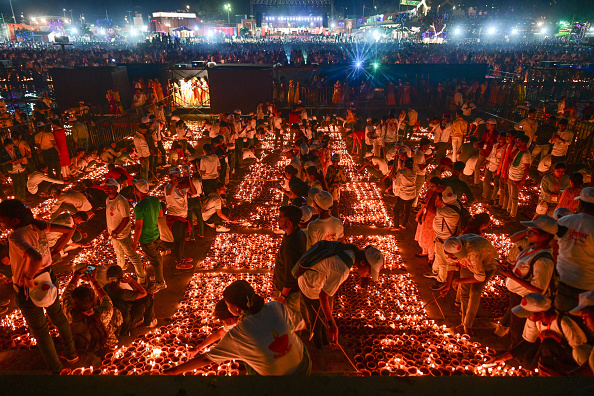Diwali, also known as the Festival of Lights, is India’s most important holiday and is celebrated by over a billion people around the world.
This year, the festival is being celebrated on 20 October. It lasts for five days and includes fireworks, prayers, feasts, and family gatherings. The name “Diwali” comes from the Sanskrit word “Deepavali,” meaning “a row of lights.” People light oil lamps outside their homes to show the victory of light over darkness and knowledge over ignorance.
The date of Diwali changes each year because it follows the Hindu lunar calendar, usually falling in late October or early November. Although Diwali is mainly a Hindu celebration, it is also observed by Sikhs, Jains and some Buddhists, each with their own stories and traditions.
In northern India, people celebrate Lord Rama’s return from exile after defeating a demon king. In the south, it marks Lord Krishna’s victory over a demon called Naraka. Despite different stories, all versions celebrate good winning over evil.
Diwali traditions vary across regions but usually include lighting lamps, wearing new clothes, eating sweets, praying, and enjoying fireworks. In southern India, people take oil baths in the morning, which is believed to purify both body and spirit. In the north, many families worship Lakshmi, the goddess of wealth.
People also buy gold, gamble for good luck, and decorate their homes with colourful designs called rangoli. Firecrackers are popular, although in some areas only “green fireworks” are allowed to reduce pollution.
For Jains, Diwali is the day Lord Mahavira reached enlightenment. Sikhs celebrate Bandi Chhor Divas, when Guru Hargobind was freed from prison. Some Buddhists remember Emperor Ashoka’s decision to follow Buddhism on this day.













